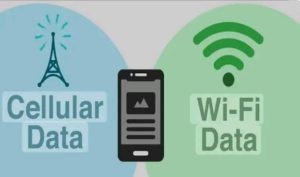By: Mutalib Jibril

The belief that turning off data grants its longevity has been a prevailing notion among many in the contemporary world. While belief can be a good thing, it can be dangerous too, mounting research as another pedestal is mighty. Though I’ve for once held on to this erroneous belief, I unveiled the reality behind toggling data off. For this write-up, let’s dissect the class of people who put their data into three different categories.
The first class is those Individuals who power down their data to preserve battery life. Well to this class, I couldn’t agree less with their belief. Leaving data on indeed drains your battery, making this a valid and practical reason for the same.
The second group turns off their data to give themselves a break from online disturbance and distractions, aligning with their hectic schedules in various settings such as homes, offices, farms, or companies. This officious decision is also spot on.
However, the mass and purpose of this discussion lies in the third set of individuals who erroneously believe that turning off data is a means of data conservation. This misconception stems from a lack of understanding regarding how data operates. It’s akin to someone with a single one-thousand-naira note compared to another with two five-hundred-naira notes, thinking the latter somehow preserves value. In reality, when data is turned off, incoming messages accumulate until reconnection, consuming the same amount of data as if it were left on.
To liberate oneself from this shackles of ignorance, When avoiding disruptions, worrying about running out of battery life, or for other good reasons, one can safely leave their data off, but never to save the lifespan of your battery.
Delving deeper into the intricacies of data management, it’s crucial to recognize that the misconception surrounding the conservation of data by turning it off is just one facet of a broader phenomenon. Beyond the act of toggling data, several factors contribute to data depletion, and understanding these nuances becomes paramount in optimizing data usage. Coming.
The way some applications were programmed is one important factor. When left unchecked, some programs have the potential to be voracious data consumers. To resolve this, you will need to go into the device settings and adjust these apps’ parameters. By doing this, users can take command of how much data each app uses, greatly reducing the overall amount of data that is being used up by the apps.
Moreover, data efficiency goes beyond simply flipping a data switch. Users need to be aware of background activities that keep running even when the device is not in use. If these procedures are not monitored, they may lead to a slow diversion of data. Therefore, reducing needless data usage can be greatly aided by routinely checking on background apps and services.
Additionally, staying abreast of system updates and optimizing network settings can play a pivotal role in data conservation. Updates often include enhancements that refine the efficiency of data usage, and configuring network settings based on personal preferences can contribute to a more tailored and judicious consumption of data.
Conclusively, the narrative of data management is complex beyond the act of turning data on or off. It encompasses a holistic understanding of the various elements influencing the hem of data consumption. Armed with this knowledge, users can adopt sullenly a proactive approach in the cause of data management, ensuring its long span without resorting to misconceptions about the efficacy of intermittently toggling the data switch, as data consumption goes beyond that.
